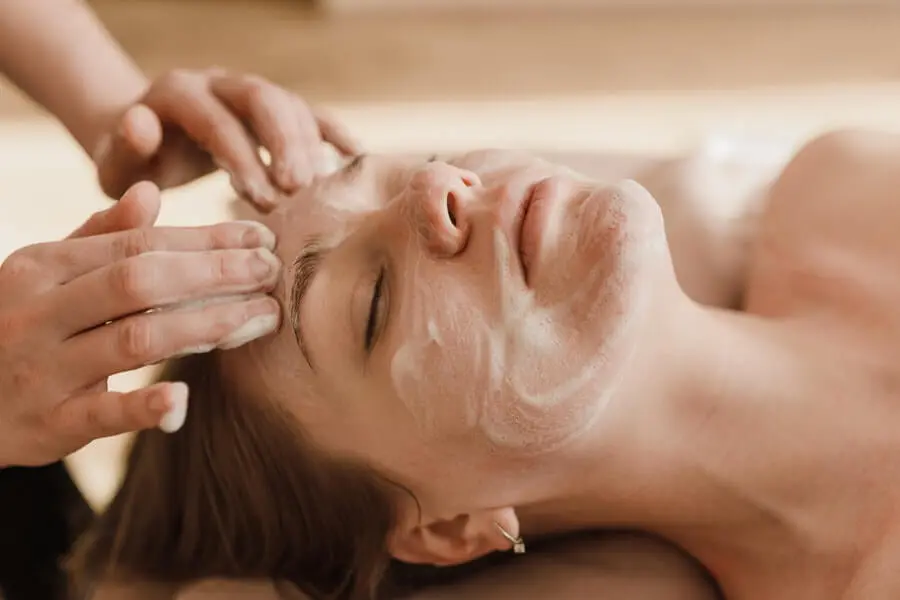Skin Therapist in Pathankot
The importance of moisturizing Skin
Introduction
Maintaining healthy skin involves more than just regular cleansing and sun protection. Visiting a Skin Therapist in Pathankot can provide personalized advice on how to properly moisturize your skin. Moisturizing is a crucial aspect of skincare that often gets overlooked. This blog will explore why moisturizing is essential, how it benefits your skin, and best practices for incorporating it into your routine.
Why is Moisturizing Important for Skin Health?
Moisturizing plays a fundamental role in maintaining the skin's natural barrier. Our skin constantly loses moisture through evaporation, which can lead to dryness, irritation, and premature aging. A good moisturizer helps replenish the skin's moisture levels, keeping it hydrated and healthy. It also supports the skin's natural barrier function, protecting it from environmental aggressors like pollution and harsh weather conditions.
How Does Moisturizing Affect Different Skin Types?
Different skin types have varying moisture needs:
Dry Skin: Needs heavy, emollientrich moisturizers to combat dryness and flakiness.
Oily Skin: Benefits from lightweight, noncomedogenic moisturizers that hydrate without adding extra shine.
Combination Skin: Requires a balanced approach, with products that address dry areas without overwhelming oily zones.
Sensitive Skin: Should opt for fragrancefree and hypoallergenic moisturizers to avoid irritation.
Understanding your skin type helps in selecting the right moisturizer to meet its specific needs.
What Are the Benefits of Moisturizing for Aging Skin?
As we age, our skin loses its natural oils and becomes more prone to dryness and wrinkles. Moisturizing helps combat these effects by:
Plumping Up the Skin: Hydrated skin appears fuller and more youthful.
Reducing Fine Lines: Proper moisture levels can minimize the appearance of fine lines and wrinkles.
Enhancing Elasticity: Moisturizers with ingredients like hyaluronic acid can help maintain skin elasticity.
Regular moisturizing is a key part of an antiaging skincare routine, helping to keep the skin smooth and supple.
Can Moisturizing Help with AcneProne Skin?
Contrary to popular belief, moisturizing is beneficial for acneprone skin. Here's why:
Prevents OverDrying: Acne treatments can strip the skin of moisture, leading to excess dryness. Moisturizing helps counteract this effect.
Balances Oil Production: Proper hydration can prevent the skin from producing excess oil, which can lead to clogged pores.
Supports Healing: Moisturizers with soothing ingredients can help reduce inflammation and support the healing process.
Choosing noncomedogenic, oilfree moisturizers is essential to avoid exacerbating acne.
How Does Moisturizing Prevent Dry Skin?
Dry skin results from a lack of moisture and can cause discomfort, itching, and flaking. Moisturizing helps by:
Restoring Hydration: Moisturizers replenish lost moisture, keeping the skin hydrated and comfortable.
Strengthening the Skin Barrier: A wellmoisturized skin barrier is better equipped to retain moisture and protect against external irritants.
Reducing Flakiness: Regular application of moisturizer prevents and alleviates the flakiness associated with dry skin.
For best results, choose a rich, hydrating moisturizer, especially during colder months when the skin is more prone to dryness.
What Ingredients Should You Look for in a Moisturizer?
Choosing the right ingredients can significantly impact the effectiveness of a moisturizer. Key ingredients to look for include:
Hyaluronic Acid: Attracts and retains moisture in the skin.
Glycerin: Draws water from the environment into the skin.
Ceramides: Help restore and maintain the skin barrier.
Squalane: Provides hydration and has antiinflammatory properties.
Avoid products with harsh chemicals or fragrances, which can irritate the skin.
How Often Should You Moisturize Your Skin?
The frequency of moisturizing depends on individual needs and skin type:
Dry Skin: Twice daily (morning and evening) is generally recommended.
Oily Skin: Once a day, preferably in the evening, to balance moisture levels.
Combination Skin: Adapt your routine based on the needs of different areas.
Sensitive Skin: As needed, ensuring that the products are gentle and soothing.
Adjusting your routine based on seasonal changes and skin conditions is also essential.
Can Moisturizing Improve Skin Barrier Function?
Yes, moisturizing is crucial for maintaining a healthy skin barrier. The skin barrier acts as a protective shield against pollutants, allergens, and microorganisms. Regular moisturizing helps:
Strengthen the Barrier: Enhances the skin's ability to retain moisture and defend against irritants.
Repair Damage: Helps heal and restore compromised skin barriers.
Improve Overall Skin Health: Supports a balanced, resilient skin barrier for better overall skin function.
Are There Specific Moisturizing Tips for Different Seasons?
Seasonal changes can affect skin hydration needs:
Winter: Cold weather can strip moisture from the skin, so opt for richer, more emollient moisturizers.
Summer: Light, oilfree moisturizers are ideal to avoid feeling greasy in the heat.
Spring and Fall: A balance between hydration and oil control is often needed as weather conditions fluctuate.
Adjusting your moisturizer based on the season helps maintain optimal skin hydration throughout the year.
Conclusion
Incorporating a proper moisturizing routine into your daily skincare regimen is essential for maintaining healthy, hydrated skin. A Skin Therapist in Pathankot can provide personalized advice tailored to your skin type, helping you select the right ingredients and adjust your routine based on seasonal changes. By understanding your skin type and following expert recommendations, you can ensure your skin remains balanced and radiant year-round.



